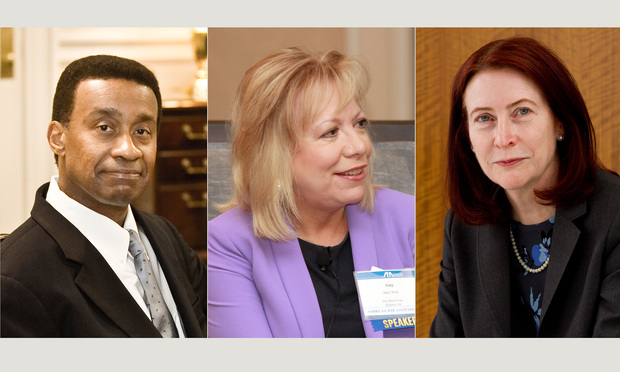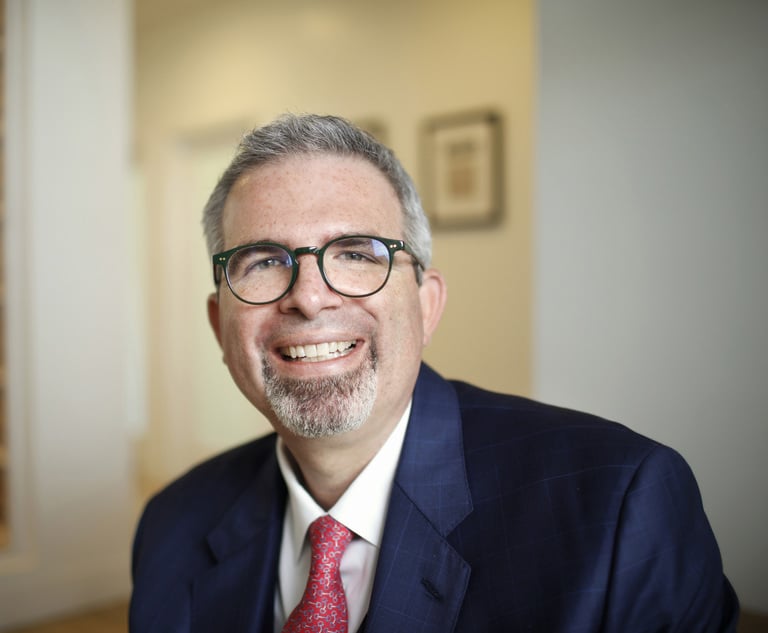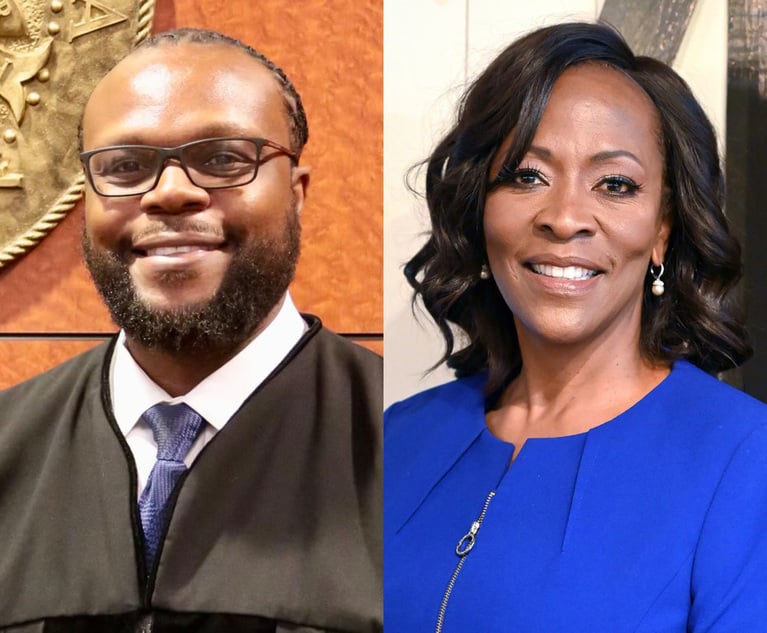For once, Judge Charles Wilson and his law clerks didn’t have to make an overnight trip from Florida to Georgia to hear oral arguments on the U.S. Eleventh Circuit Court of Appeals’ Atlanta docket.
Instead, Wilson dialed in from the comfort of his Tampa chambers, joined remotely by judicial colleagues—sheltering in place in Atlanta, Macon and Miami—and lawyers from across the country, who opted to experiment for the first time in the Eleventh Circuit’s history with delivering oral arguments by telephone.


 Judge Charles Wilson (from left) and attorneys Amy Weil and Laurie Webb Daniel.
Judge Charles Wilson (from left) and attorneys Amy Weil and Laurie Webb Daniel.





